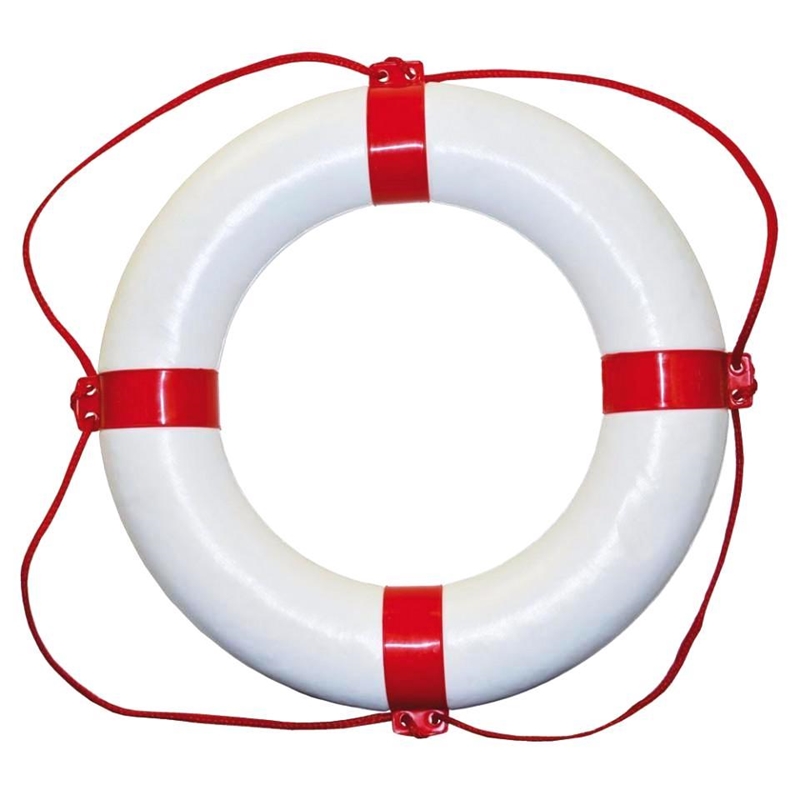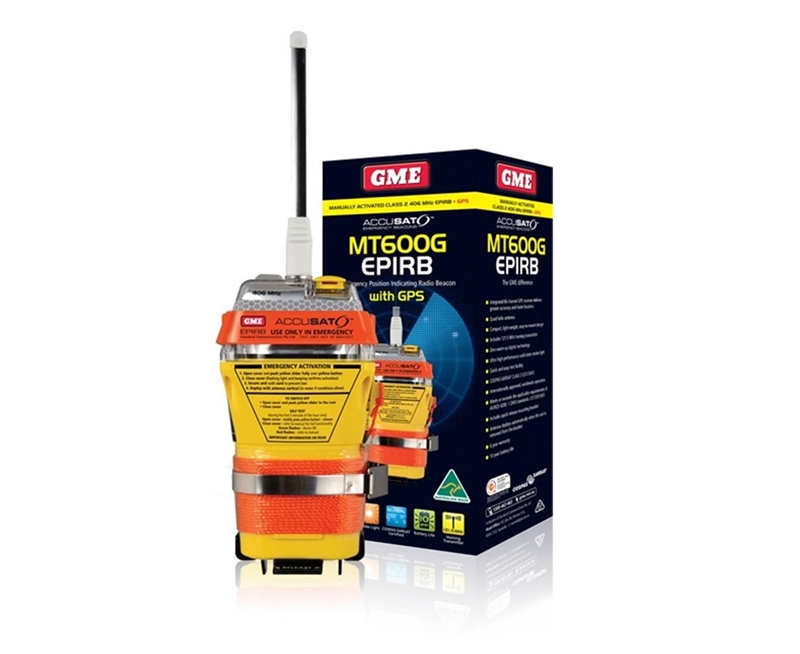A smart boater always checks the weather forecast before heading out to sea. But sometimes the unexpected happens, and you can find yourself in the middle of stormy conditions, despite the predictions of the weather service.
In these situations, it's vital that you have the right safety equipment on board. What should some of that equipment be?
Life ring
When the swells start pumping higher, there's always an increased risk of someone being thrown into the drink. A life ring is a simple but effective tool for saving people if this happens.
Your crew will all hopefully be wearing their life jackets, so even if they fall overboard they'll still be able to float. What a life jacket doesn't do, however, is give you a line to the boat. A life ring with a rope attached to it running back to the boat is a handy bit of kit to help pull someone back to the safety of your deck.

Boat Bailer Kit
If water starts gushing into your boat from over the sides, you'll want something to be able to bail it out again. That's where a boat bailing kit comes in. Unlike a regular bucket, this bailer has a square mouth, so it's easy to use on a boat's floor.
There's also a bunch of other handy stuff inside, like a throwing line, torch and compass.
Flare Kit
A flare kit is one of those no-brainer safety items you should have on your boat. If it starts to get dark and you're still out on the water needing help, sending up a flare can help any boats see where to come to your aid.
EPIRB
Of all the safety equipment you should have on your boat in rough conditions, an EPIRB might be the most important. Storms can pull your boat off course, and if you're unable to get back to your launching point, an EPIRB can be the key to emergency services locating you. Standing for emergency position indicating radio beacon, an EPIRB broadcasts your location using radio signals (and in some models like the GME MT600G, GPS).

No matter how much gear you have on board, the best thing you can do for your safety is to always check the weather before you go out boating. If it's too rough, don't take the risk.
To learn more about all things boating, check out our other blog articles. If you like what you see, you can sign up to our email newsletter and be treated to a selection of new ones every month.




